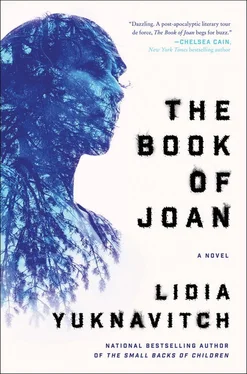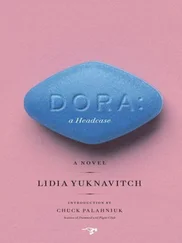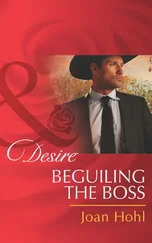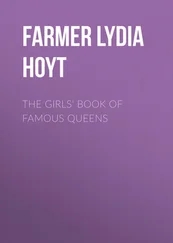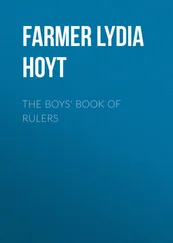She saw unstoppable and perpetual war as existence.
Her eyes stung and blurred with salted wet, but only for a few seconds. About the time humanity has lived on Earth compared to the cosmos. “Bring your last war,” she whispered into her headpiece, deciding in that instant that all life was already death. “This ending is just beginning.” She did not fire a rifle. She did not trigger a bomb. She looked once at Leone; she set her shoulders, her jaw; she put her hands down into the dirt. Sand. Oil. Molecules of air. History. Religion. Philosophy. Human relationships. Evolution.
From the carcass of the drone on the ground, Jean de Men’s voice yet warbled out, “Apostate, vile whore, immoral terrorist, this day you die.” Secure in his power and armed forces, his army already surging forth, drones going to wing the way insects and birds used to.
“There is no self and other,” she said, laughing into the mouth of death, the blue light at her temple gleaming laser-like into the sky and surrounding air, the song in her head crescendoing in tidal waves and reverberating in the bones of every man, woman, and child around her, her armies plunging and rising as if carried by apocalyptic body song.
And when she rested her body down upon the dirt, arms spread, legs spread, face down, there was a breach to history as well as evolution.
And the sky lit with fire, half from the weapons of his attack, half from her summoning of the earth and all its calderas—war and decreation all at once, a seeming impossibility.
Alive. Trinculo says she’s alive, down there, existing in spite of everything.
The song. In my head. It’s hers. I remember now. It went into us. I don’t know how.
Once, she had a voice.
Now her voice is in my body.
Night. Every time the dull gouache of day gives way to the ebony of night, Joan feels like an alien. Fucking lunar landscape. Nearly impossible to believe this is Earth; even she has to remind herself she is not belly-down on the moon. That the dirt in her mouth holds no nutrients, that it has become more like chalk. She knows all through her bones and her flesh that her body against the ground is closer to reptile than human, for—like that of a reptile stalking the vast desert wastelands—her existence has been reduced to the slender impulse of survival. Salvage missions. There’s no life left but them. Or what is left of Earth. That’s what she’s coming to believe. Earth is, now, a spotted apocalyptic terrain: muted sepia sun during the day, moon so faint it looks like a bruise at night. A lifeless ball of dirt. At least at the surface.
They wait. She and Leone. For the right moment.
Joan rolls onto her back, looks over to another boulder, where Leone crouches. Then she closes her eyes and feels her own face. It is calming to feel her face. When she closes her eyes and tracks the burns on her skin, her neck, shoulders, it is as if she enters another dimension, one in which her body becomes an undiscovered land and not the grotesque burned thing that she knows it is. Under her hands, she can reinvent things on the surface of her skin. She can imagine that her face is a terrain. The burns stretching and diving like microravines and mountains, or pinching and puckering like the foothills of a country. She used to have a country. Everyone did.
Once there was a girl from France. She heard a song and became a warrior for her country, but her country lost its shape and aim in the Wars, as all countries did, and then there were just combatants and civilians, and then just civilians gone brutal against one another, endless violence. Then the girl made a choice.
Once there was a girl.
She does this at night, when she can’t sleep. She closes her eyes and ritually runs her fingertips over the geography of her face. Years of childhood and family recede and depress, replaced by the valleys and mountains of scar tissue and aging. Under her right eye and where her cheekbone begins, the war years. Her gone adolescence. At her nose bridge the burned skin turns, almost spiral, and in her mind’s eye she can feel how near rage and love are in us all. We try to pretend they are opposites or at far poles from one another, but really they meet and bridge at the center of a face. They make a nexus. She feels the fiction of faith at the bridge of her nose. If she presses down on the waxen scar she can feel her skeleton underneath. How easily she could bore her finger like a drill into her own gray matter.
Near her jaw, against the edge of her mouth, she feels the people she once loved. Her mother. Her father. Her brother. And then those she learned to love through labor and resistance. Brothers and sisters in arms. Love is a word with ever-exploding definitions forged at the corners of her mouth, her mouth now set like a jagged slit against any expression or feeling.
Her face is a new world. Her skin carries the trace of her primary wound. She lives in the killer’s body; she lives in the body of one who might make life. She thought the killing was justified. In the wasteland that is left of her desires and righteous aims, she can see now that there is no just violence. Violence merely is. It murders us the moment we bring it to consciousness. Under her fingertips her burned chin sits like a guilty, poreless butte, a stubborn reminder that she was put to flame. Burned after she blotted out the sun.
If she travels the territory back up to the left side of her face carefully with her fingertips, where the burns left their most brutal mark, that place where her eye is misshapen—the lid pulling down too far, farther than a sleeper’s—that place is Leone.
My eye is you, Leone.
My eye was always you.
A clicking sound. Leone signaling. Joan opens her eyes, scans the scene before them, and nods back to Leone.
Joan elbows her way less than an inch at a time along the ground, through low-lying thistles and the skeletal remains of shrub brush. The dirt smells of dried and dead things and grinds into her clothing. She pauses and clutches a handful of dirt that has a small bit of nearly petrified twig in it. She smiles. Reaches for her rifle. The rifle’s infrared light traces a path along the ground in front of her. When she reaches a boulder twice human in size, she pushes herself up into a crouched position. It’s roughly three hours till what passes for daylight. She props her rifle up onto her thigh, turns, and sits down with her back against the rock.
She takes a deep but soundless breath. Holds it. Closes her eyes. When she opens them, the vertical line of her rifle in front of her splits her vision.
What moves her is the gas-piston operating system of her weapon, the quick-change barrel, the firing pin block, and ambidextrous charging handle. She knows the Magpul Masada better than any human. Whatever conversations, whatever potential human relationships passed earlier in her life are moot. Her weapon is now her brutal kindred spirit.
On the other side of the boulder, one hundred yards across rock and dead brush and dirt in an area that was once populated by a small stand of fir trees, is a camouflaged technological arsenal, guarded by what looks like two CIEL human sentries. Their skin too white. Grafted and puckered. Leone discovered the site nearly by accident in a routine radar sweep, literally suspended over their heads at a crap station in Tunnel 27. Joan can make out the rise of a Russian-made machine gun turret alongside a row of explosive warheads—probably American, or perhaps French—from the blue sheen of their shells. It’s difficult to tell if the small mound is meant strictly for munitions or if it holds some deeper useful secret. Kill the guards, raid the arsenal, blow it to shit. There is always a chance of finding something useful. Joan pulls down her night goggles and inhales. Her bicep twitches. She swallows. Dirt and the memory of sage. Night sniping always calms her nerves.
Читать дальше
